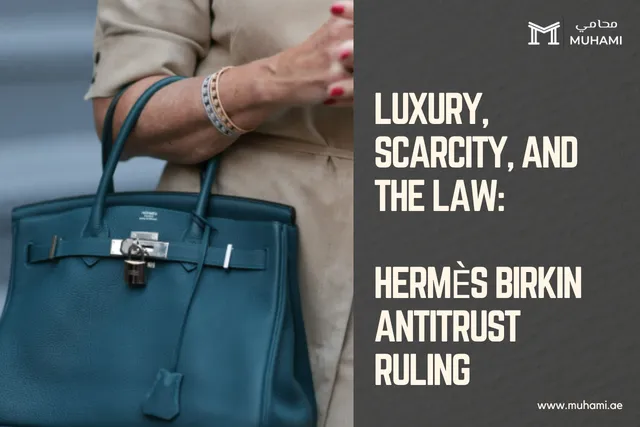How Well Do You Understand the Legal Landscape of UAE’s Hospitality Sector?

Supported by robust tourist and corporate activity, the hospitality sector in the United Arab Emirates (UAE) remains a cornerstone of the country's non-oil economy. Dubai's tourism industry alone contributed a staggering AED 180 billion to the UAE's economy in 2023, nearing the pre-pandemic peak of AED 183.4 billion in 2019. High hotel occupancy rates, a rise in foreign tourists, and increased demand continue to position Dubai as a premier global travel destination.
With over 700 hotels now operating in Dubai and projections of 25 million visitors a year by 2025, the industry presents a large opportunity for new players. It's critical to choose a hotel location that appeals to your target market, whether they are business professionals, vacationers, or both. Being close to major landmarks, airports, and business centres gives you a competitive advantage. However, it takes more than simply a prime location to succeed in this market.
It is essential to abide by the strict legal and regulatory framework of the United Arab Emirates. Comprehensive legislation that guarantees quality standards, consumer protection, and harmony with the nation's vision controls the real estate and hospitality industries. These include the creation and negotiation of management agreements, lease contracts, and supplier agreements, as well as rules pertaining to zoning, hotel classification, and licensing.
To guarantee long-term operational success and steer clear of hazards, navigating this legal minefield requires experience. Understanding the legal aspects is crucial to safeguarding your investment and maintaining your reputation in this fast-paced market, whether you are negotiating with foreign operators, establishing joint ventures, or handling ESG compliance obligations.
You can set up your business to profit from the UAE's booming hotel sector while abiding by its strict regulations by taking operational and legal factors into account. Challenges in the Licensing and Permitting Process for the UAE Hospitality Market Starting a hospitality business in the United Arab Emirates requires navigating a complex network of licensing and permit laws. Investors must consider a variety of constraints in both mainland and free zones, each with its advantages.
Applying to the Department of Economy & Tourism (DET) to Register Your Business
In order to legally operate a hotel in mainland Dubai or the United Arab Emirates, you need to register your company with the Department of Economy & Tourism (DET).
Choosing a business structure: Whether it's a limited liability company (LLC), sole proprietorship, or UAE free zone formation, pick the right business structure. Every structure has unique needs and consequences.
Getting the documents ready: Assemble the necessary paperwork to support your business registration, including your trade license application, business plan, name choice, and licenses.
Fee Payment: Set aside money for registration fees and other DET-imposed fees to ensure that financial commitments are met. Following these procedures guarantees that the DET will legally recognise your company, which will expedite further approvals and operating activities.
Approval from the Department of Tourism and Commerce Marketing (DTCM)
The Department of Tourism and Commerce Marketing's (DTCM) clearance is necessary after DET registration. In addition to evaluating hotels for size and safety compliance, the DTCM assigns star ratings to each establishment. A hotel license is granted in compliance with requirements. The next important stage in opening a hotel in Dubai and the UAE is getting DTCM permission after registering with the DET. This involves fulfilling the strict requirements outlined by the DTCM, such as standards for service quality, safety, and hygiene. This procedure entails:
Classification and Inspection: The DTCM uses star ratings to categorise hotels and carries out extensive inspections to make sure that safety and size requirements are being met.
Verification of Compliance: Get ready for DTCM authorities to conduct inspections to confirm compliance with rules and licensing specifications.
License Authorisation: The DTCM grants an official hotel license, allowing the establishment to function in accordance with UAE hospitality standards, following a successful inspection and approval.
Hotels frequently serve alcoholic drinks, which calls for specific applications and license requests in addition to fulfilling certain requirements. Furthermore, it takes careful thought and compliance with rules to serve cuisine in a hotel restaurant. It is crucial to obtain the appropriate licenses and approvals from civil defence, the municipality, etc. Additionally, if a hotel restaurant provides food, it has to make sure that the criteria for supplying non-Muslim and halal cuisine are followed. This entails keeping halal and non-Muslim food items, such as pork, in different kitchens and preparation areas.
Any Questions?
Connect with lawyers and seek expert legal advice
Share
Find by Article Category
Browse articles by categories
Featured Partnership
Lawcloud
LawCloud: All-in-One Legal Practice Software
Related Articles

Cash locked in VAT is cash you cannot u…
A practical guide to reclaiming VAT on commercial real estate in the UAE Two…

Cash locked in VAT is cash you cannot use to run …
A practical guide to reclaiming VAT on commercial…

Why FIDIC Red Book Contracts Must Be Am…
Introduction For Owners and Contractors in the UAE, the unamended FIDIC Red …

Why FIDIC Red Book Contracts Must Be Amended Befo…
Introduction For Owners and Contractors in the…

Luxury, Scarcity, and the Law: Hermès B…
On September 17, 2025, a California federal judge dismissed an antitrust lawsui…

Luxury, Scarcity, and the Law: Hermès Birkin Anti…
On September 17, 2025, a California federal judge…
